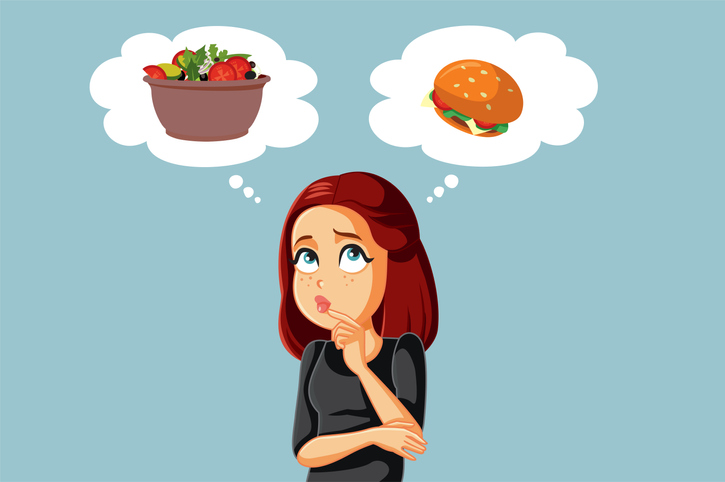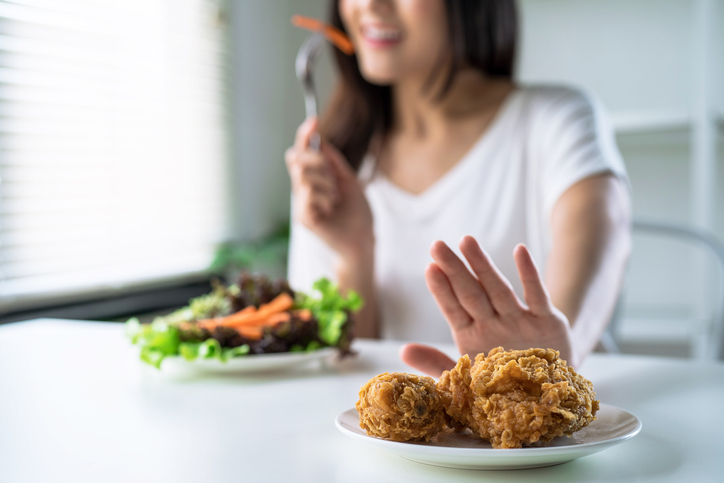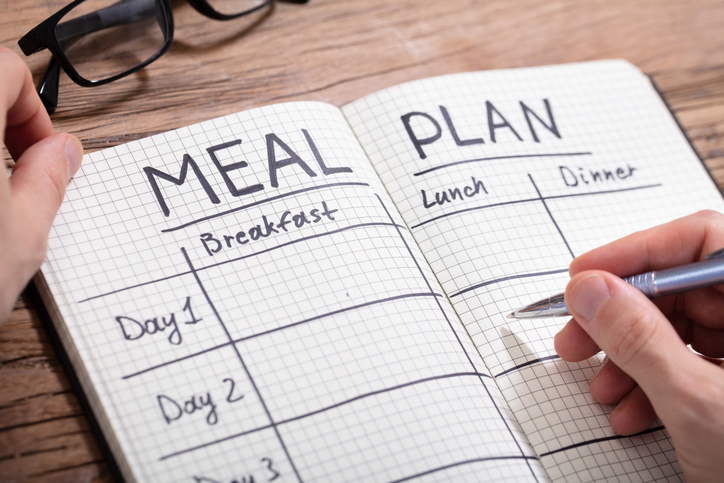View Health and Nutrition Resources for Students
Students are not often thinking of nutrition when they are caught up in their studies. Whether you are a high school student, undergraduate in college or graduate college student, you might be so engaged in your classes, student life, personal life, and work that you haven’t been considering what foods and beverages you are feeding your body. Nutrition is very important for students, and it is something that everyone should be thinking about, especially students who are trying to take in new information and need the proper fuel to enable their brains to do so effectively. Here, we will talk about how nutrition affects students, what some of the best and worst foods and drinks are for students, and offer some resources that students may wish to consult on health and nutrition.
Why Is Nutrition Important for Students?

What you put into your body will greatly affect the functioning of your brain. Foods that are rich in antioxidant vitamins and minerals, for example, will provide your brain with slow-acting nutrients that protect your brain from changes and stressors.
Foods that are dense in nutrients help you remain attentive and productive in your classes and throughout your day.
Eating the right kinds of foods can also improve your immunity, keeping you from getting sick.
The “Freshman 15” is a popular, long-standing myth. It has long been believed that freshmen at college would gain 15 pounds during their first-year due to poor eating habits. However, studies have shown the actual gain is closer to 7.5 lbs., just half of the predicted amount. First-year college students also often battle depression. A study has shown that improving your diet and eating recommended foods listed below can help reduce depressive symptoms by 25 percent, over those students who regularly eat processed foods, sugary desserts, fast food, and soda. Eating healthy foods will not only keep your weight manageable, it will also provide the fuel your brain needs to learn.
Even more impactful, one study has shown that maintaining a healthy diet can help GPA levels to rise. Particularly, eating a healthy breakfast contributes to better academic performance in class and on exams. Consuming fast food, on the other hand, can lead to a lower GPA. In that study, students who ate fast food seven times in the past week reported lower GPAs than those who ate it less than four times in the past week.
What Foods are Recommended for Students to Consume?

Healthier foods that are better than others and are recommended for everyone to consume, not just students, include:
- Complex carbohydrates (whole unprocessed grains)
- Fruits and vegetables
- Nuts, seeds, olive oil, foods with unsaturated fat
- Legumes
- Lean proteins
Certain foods that students might want to focus on in times in which they need extra concentration, or an attention or performance boost, include:
- Foods with Omega-3 fatty acids contribute greatly to brain functioning, help to regulate mood and sleep, and reduce rates of cognitive decline with aging. They include, but are not limited to:
- Avocado
- Salmon
- Chia seeds
- Walnuts
- Foods rich in Vitamin E can improve brain functioning, leading to better performance. Some of these include:
- Seeds
- Nuts
- Leafy green vegetables (spinach, kale)
- Foods rich in iron can improve brain functioning and prevent cognitive decline. Some include:
- Leafy greens
- Green vegetables (broccoli)
- Whole grain foods can improve blood flow to the brain and reduce the risk of heart disease. At least half of a student’s daily intake of grains should consist of whole grains. They include:
- Oatmeal
- Whole wheat breadWhole wheat pasta
- Brown rice
- Fruits and vegetables have been proven in a study to enhance student GPA by 0.15 points.
What Foods and Drinks are Not Recommended for Students to Consume?

Fatty, greasy foods can take much longer to digest than others, and are not recommended to eat, especially near bedtime. This can prevent you from getting a good night’s sleep, negatively affecting your performance the next day.
Foods with trans fats like processed baked goods and fried foods, should also be avoided as they can lead to impaired memory and cognitive functioning. Studies have indicated that students eating diets high in saturated and trans fats perform worse on exams that require memorization and critical thinking. When preparing for such exams, it is recommended to severely limit or avoid foods with trans and saturated fats.
Some foods, such as simple, refined carbohydrates (white bread, white rice, white pasta) can cause your blood sugar levels to rise quickly, then crash. This can affect not only your attentiveness but also your mood. Opt instead for complex carbohydrates like whole grain foods and legumes that will offer a steady stream of sugar to fuel your brain. This will help you to remain focused on the tasks at hand.
Although 92 percent of college students consume caffeinated beverages, these should also be limited or avoided when you are studying. While they can offer a short burst of energy, they lead to crashes that can cause poor sleep, leading to poor academic performance. Caffeine can interrupt your study habits and efficiency for days to come.
It goes without saying that alcohol can affect your academic performance. Drinking alcohol in adolescence and during the college years has been associated with brain damage and cognitive deficiencies. This has severe implications on the ability to learn, especially as the college student’s brain is still developing. Limit your alcohol consumption as much as possible while in college.
Skipping meals is also a no-no when it comes to improving academic performance. This can also cause energy crashes and lead to impaired performance on exams.
How Can I Plan Healthier Meals?

Students often run into problems when trying to eat healthier, as they are always on the go and might be grabbing convenience, high-fat foods far too often. Eating healthy can be convenient, too, however. Just a few simple changes can have you grabbing a piece of fruit in the morning instead of a high-fat muffin, or ordering a salad from a fast-food restaurant instead of burger and fries (consult our resources link below for more healthy fast-food options). Switching up your snack time choices from chips and cookies to fruits and vegetables high in fiber can make a real difference in how you feel, in how long you stay satiated, and in how your brain processes new information.
Meal planning can take a bit of time initially, but in the end, it can help you to create healthier habits that can last a lifetime. Consult the link in the resources section below for healthy meal planning through MyPlate.gov.
Health and Nutrition Resources for Students
Following are some health and nutrition resources for students to consult for more information:
Fitness
- Working Out in College: Getting Started and Staying Motivated – offered by Grand Canyon University, a plan is presented for ways that busy students can work out in college
- The Ultimate College Fitness Guide: Top 10 Workouts for Busy Students – offered by HealthTechZone, this guide presents 10 workouts busy students can incorporate into their lifestyles
- A College Student’s Favorite Free Fitness Resources– list by a college student with celiac disease of free fitness resources available to all
General Wellness
- Health and Wellness Guide for Busy College Students – offered by Purdue Global, this includes information on nutrition, exercise, sleep, and mental health for college students
- The Ultimate Wellness Checklist for College Students – offered by University of Colorado Boulder, this is a list of all wellness items that new and transfer students should consider
- Online Wellness Resources – Presented by National University, this is a list on wellness and mental health resources available to students online
Self-Care
- Active Minds Resources for Self-Care– information provided by Active Minds to remind everyone, including college students, to practice mental health self-care
- Self-Care for College Students – by The Jed Foundation, explains types of self-care and how college students can, and why they should, practice self-care in their everyday lives
- Student Self-Care Toolkit – offered by Classroom Mental Health, this is a list of information and resources on managing stress, nutrition, exercise, sleep, and setting goals
Meal Planning and Healthy Eating
- The Healthiest Order at Every Major Fast-Food Chain – this article provides examples of some of the healthiest options that you can order at major fast-food chains across the United States.
- MyPlate Plan – offered by the US Department of Agriculture, this tool enables you to plan healthy meals based on your age, sex, height, weight, and physical activity levels
- Spend Smart, Eat Smart – information from Iowa State University that helps you to plan, shop and eat a healthy diet on a budget
- Reading the Food Label– YouTube video by Iowa State University that is very helpful in learning to read nutrition value food labels
- Tips to Help College Students Eat Healthy on a Budget – Video from the Today television show
- 10 Healthy Eating Tips for Busy Students – information from Clarke University to help college students on the go eat a healthy diet
- Food Composition Resources – information from the US Department of Agriculture on the nutrients, compounds, micronutrients, macronutrients and more found in foods
- Dietary Guidelines for Americans– offered by the US Department of Agriculture, this publication outlines the current dietary guidelines for all Americans
Eating Disorders
- Eating Disorders in College Students – information from The Emily Program on eating disorders in college students and how to help someone you suspect may have an eating disorder, or yourself
- Well-Being Support for Students Struggling with Eating Disorders – presented by TimelyCare, this informative guide provides information on eating disorders in college students and how to get help
- Eating Disorders and College Students – publication by the Multi-Service Eating Disorders Association that offers information on eating disorders and how to help friends with eating disorders






